Here’s why I’ve cast my Les Paul aside for a lighter alternative - plus 6 other lightweight guitars to consider
Want to go lighter? Here are the models from Gibson, Squier, Danelectro, Gretsch and more you should be checking out
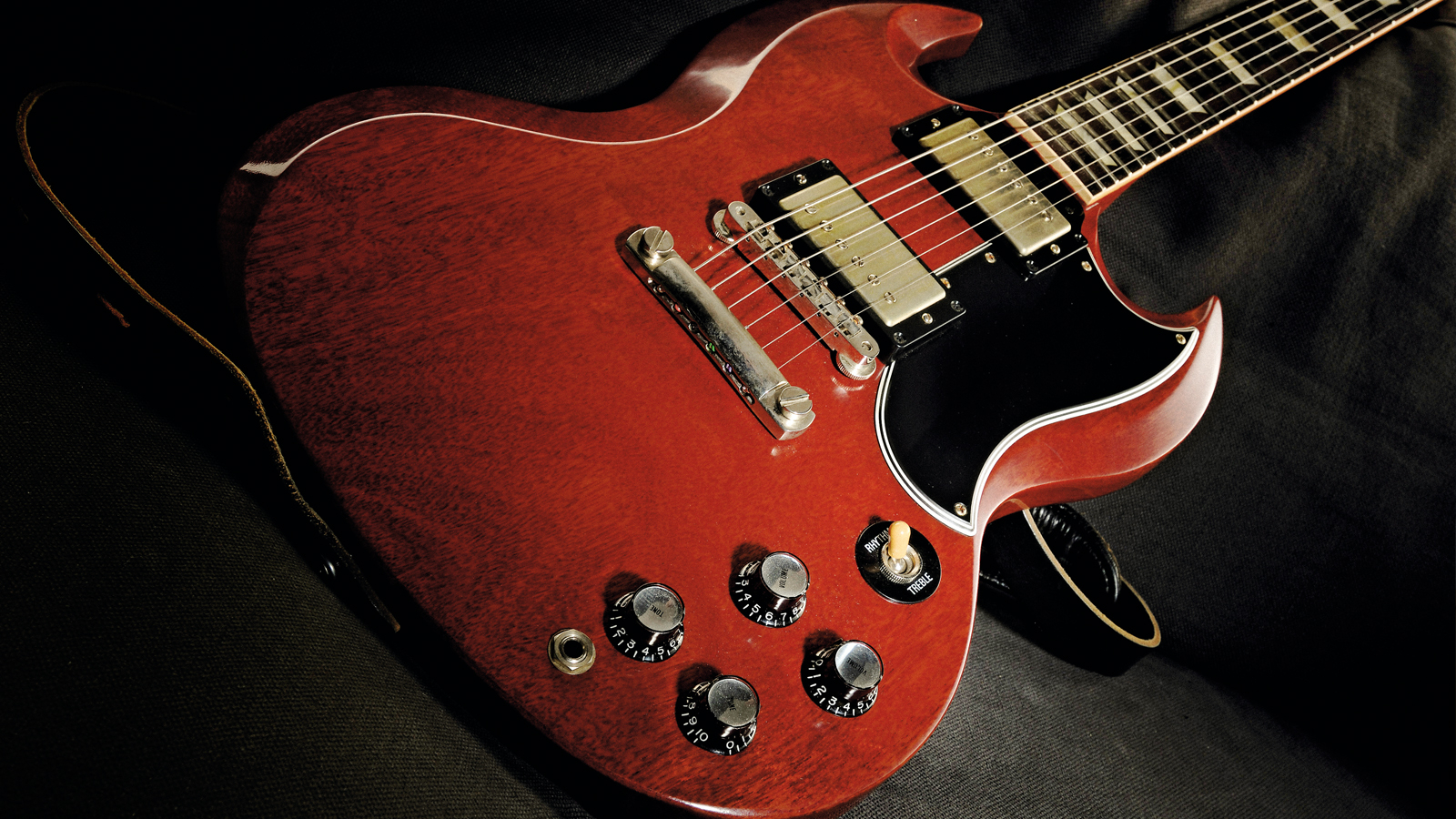
For as long as I can remember, I've been collecting electric guitars and playing live in bands - amassing a collection that's fast approaching 30 strong. Now, while some players get obsessed with one style of six-string and collect as many variants as they can, I prefer all my guitars to be different. I wouldn't say I gravitate toward one particular model, neck shape, or style. Instead, I focus on what sound will be produced. However, one factor is increasingly affecting how I select my guitars - the weight!
I feel more drawn to lighter guitars than ever before, opting to put down the Gibson Les Paul in favour of something a little less backbreaking - and I guess I can't be the only player on the hunt for a more shoulder-friendly instrument. Now, don't get me wrong I love my Les Paul, but I definitely don't feel as agile on stage with it around my neck and most of the time I can achieve a very similar - if not better - sound from a lighter alternative, such as my SG.
So with that in mind, I thought I'd break down some of the lightest guitars I've found on my travels and also talk a little about how the change in weight can affect the playability and tone of an instrument.
Below you'll find some commonly asked questions surrounding lightweight guitars, as well as six models that I believe are great sounding and offer fabulous value for money.
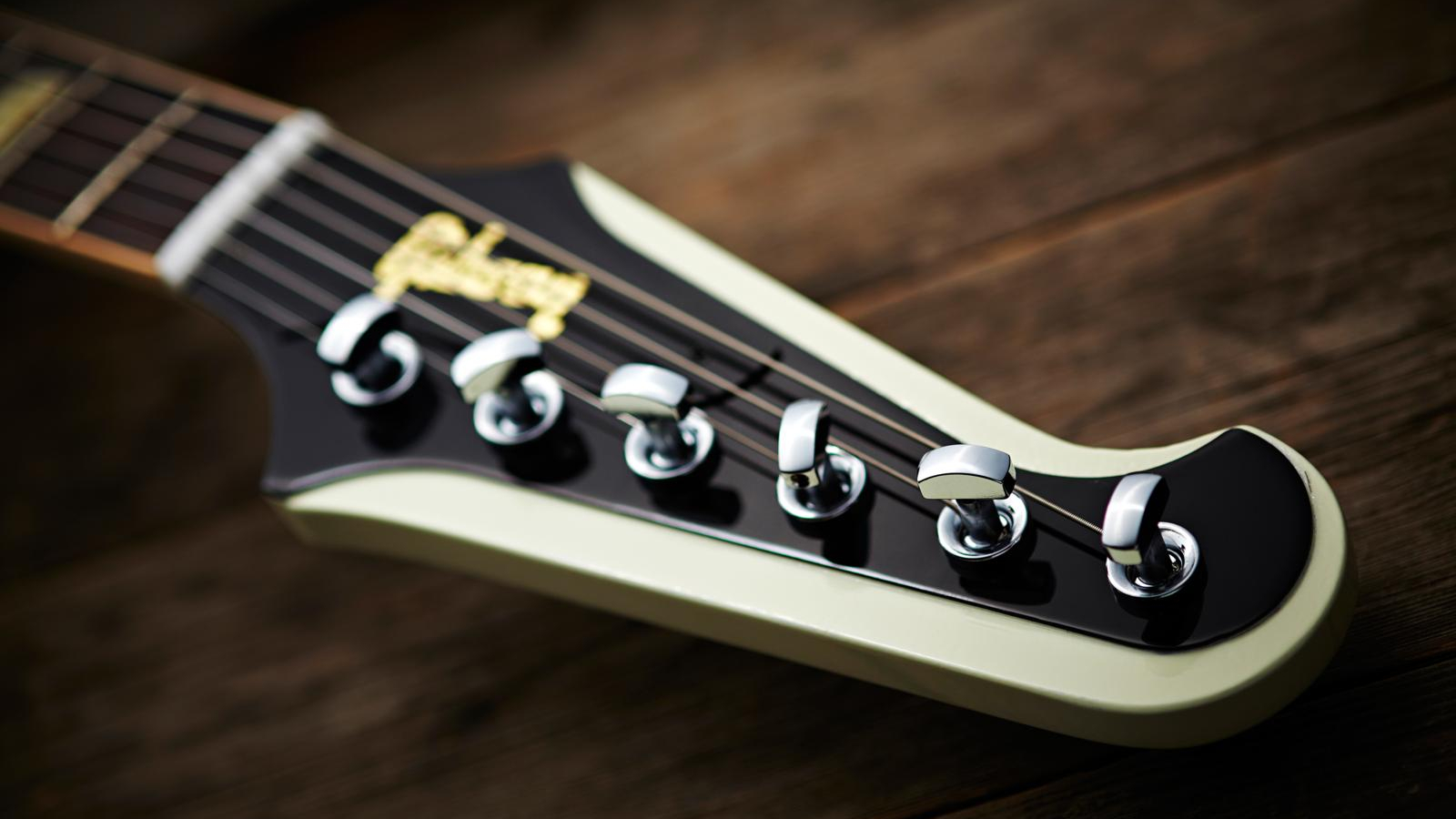
How we define a lightweight guitar
MusicRadar's got your back
Now, this is a complicated topic to approach as the weight of guitars doesn't just vary from model to model, but two identical instruments can feel entirely different to hold. For example, I have a trio of Gibson Firebirds, and on the surface, they look pretty similar and are constructed using the same materials. Nevertheless, they each feel vastly different from each other.
My current number one is a Gibson Firebird V. It's lightweight, resonant, and a joy to play on stage for three hours. On the other hand, my Non-Reverse Pelham Blue is a little heavier, but not so much so that it would stop me from playing it at a long show. However, my Non-Reverse Firebird III with a triad of P-90 pickups can feel like Mjollnir on a good day. Yes, the guitar sounds fantastic, and I love playing it, but before packing for a show, I do consider how long I'll have to stand up with this behemoth of a guitar strapped to my shoulder and tend to grab a different member of the flock. So for that reason, I didn't include any Firebirds in my recommendations. That said, if you find a lightweight one, grab it, as you can't go wrong!
So, while it's easy to categorise specific models as "light", in my experience, it doesn't work like that, as there are too many variables to consider. Also, what some players may consider heavy, could be light to someone else. That said, some manufacturers make guitars especially to be lighter or use materials that just mean the guitar will inherently weigh less than a chunky solid body.
Generally, we consider guitars around 6–7 lbs (2.7 - 3.2kg) to be fairly lightweight and comfortable for most people.
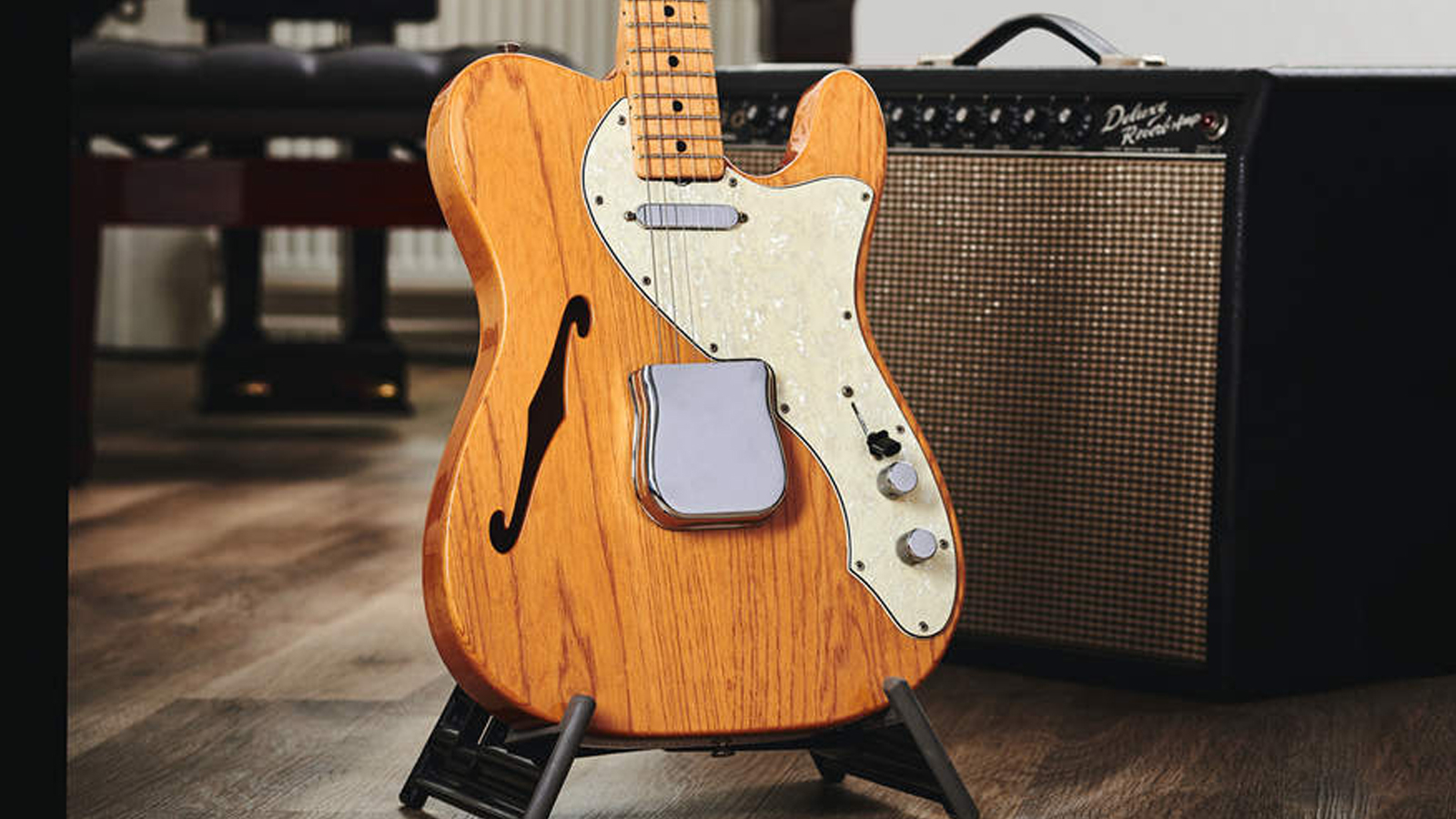
Why buy a lighter guitar?
Many factors may make you gravitate towards a lighter axe. If you have back and shoulder problems and simply can't take the weight of your beloved guitar anymore - and the thought of standing up with a Les Paul Custom around your neck is enough to make you give up the instrument altogether - then seeking a lightweight option may reignite your love of the guitar and get you back to making music again.
Numerous gigging musicians will be seeking a more manageable alternative to their heavy number one - especially those with a trusty Yamaha SG-2000, which starts to resemble the weight of a neutron star after the first couple of songs.
Playing a heavy guitar on stage can be a struggle - I've been there - but a lighter choice could be what you need to start enjoying shows again and even help you give a more energetic performance. Personally, I've experienced neck, back and shoulder pain after long rehearsals and shows, and this was practically eradicated when I switched to a lighter guitar.
Maybe you prefer the way lighter instruments sound. Lightweight guitars possess a different tonal quality than dense, solid-body guitars, and that may be the type of sound you are drawn to. Whatever the reason, you'll be sure to find a great lightweight option at the end of this article.
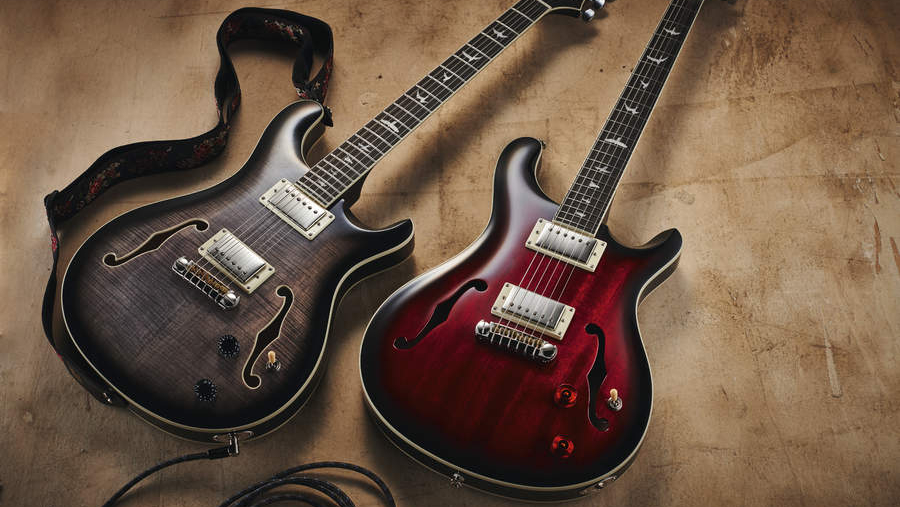
Do lighter guitars sound different?
In reality, all guitars sound different, and each instrument brings its unique sonic signature to the table. Many factors can change a guitar's timbre, from the pickups, the materials used and, of course, the weight.
Many players report that lighter guitars can be more resonant and vibrant, with a tone that sounds a little more alive - with some guitarists just preferring the way a more delicate guitar reacts to their playing.
One player who will always pick a lighter axe is slide master extraordinaire Derek Trucks, saying to Premier Guitar, "I found most of the time, if you go through five or six guitars, the lightest one is probably gonna sound better. I don't know if it's older wood or dryer, but they seem to speak a little bit better".
That said, not all players feel the same. Some guitarists swear blind that a ponderous Les Paul will have more sustain and there for a much better tone. Really, it all comes down to personal taste and the particular guitar you're playing. So try some guitars out and find the model that speaks to you.
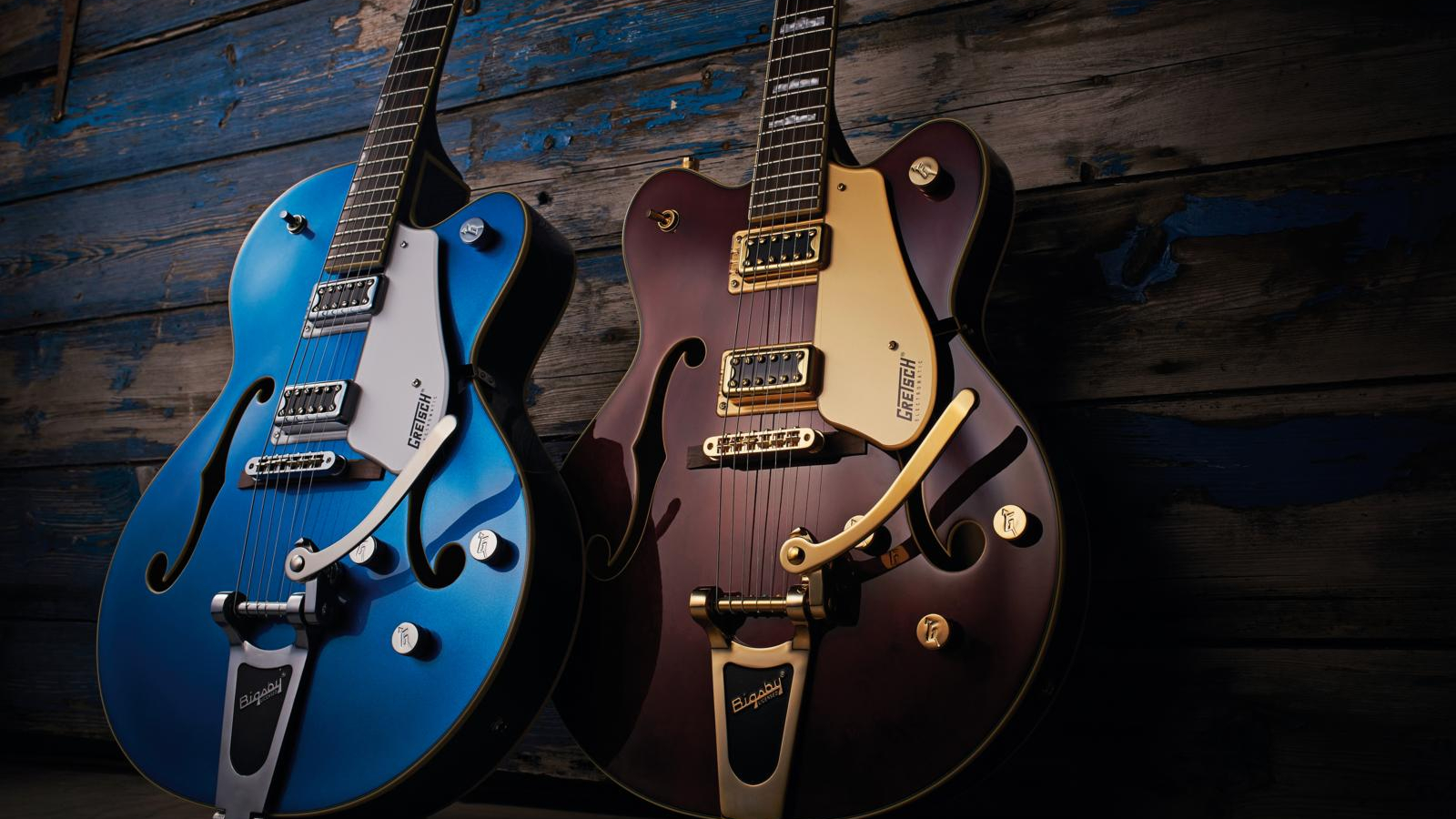
Why do some guitars weigh more than others?
The guitar's construction will significantly affect how much the instrument weighs. The principal wood used to create the body - as well as the building method - will determine how heavy it is. While guitarists will argue until the cows come home about whether wood type has any auditory benefit, it can't be denied that it has a consequential impact on the guitar's mass.
The Les Paul's sandwich of flame maple and dense solid mahogany makes for a perfect pairing if you are looking for a rich and thunderous sound. Still, it will weigh considerably more than a basswood body singlecut from Gretsch or a fully hollow maple ES-330.
So, if you are looking for clues on how light a guitar is - and you aren't able to get a hold of it - an excellent place to start is the materials used to create it.
Lightweight guitar recommendations
As we stated above, the weight of a guitar can vary slightly even between two identical models and therefore it's often difficult to get an exact weight of the instrument on the brand's website.
So, while we can safely say each model below sits comfortably in our light guitar range if you want to be sure, you should aim to get the guitar in your hands before you buy - or at the very least buy from somewhere that has a decent returns policy.
Alternatively, if you email the store you're planning on purchasing from, they'll be able to weigh the exact guitar you'll be sent.
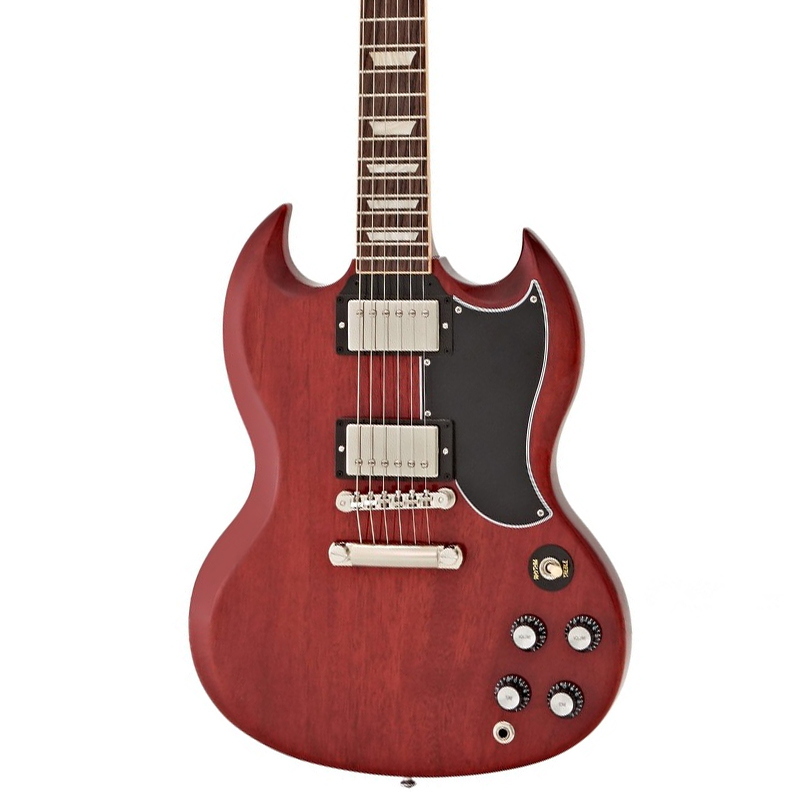
Body: Mahogany
Neck: Mahogany
Fingerboard: Rosewood
Pickups: 60s Burstbuckers
+ Great neck
+ Superb pickups
- A little fragile
The SG was the instrument that started my love affair with lighter guitars. I was used to playing a Gibson Les Paul Standard, and the SG was a welcomed change of pace. Not only was it lighter, but every note would sing in a way that wasn't possible on the LP.
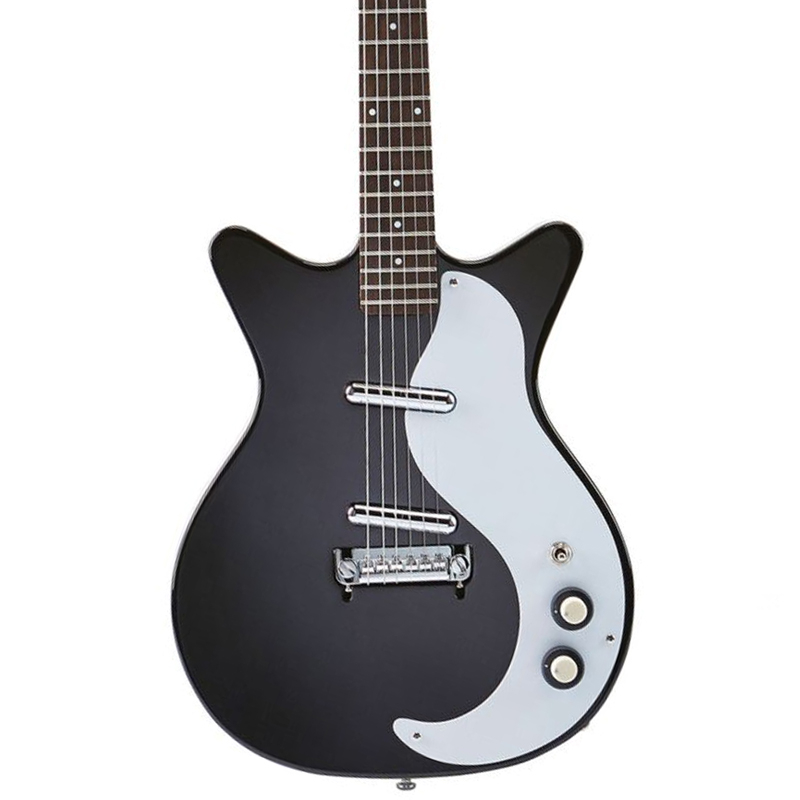
Body: Spruce/Hardboard
Neck: Maple
Fingerboard: Pau Ferro
Pickups: NOS+ Lipstick
+ Vintage mojo
+ Very playable
- Look isn't for everyone
This Danelectro has to be one of the lightest guitars I've ever played. The combination of a spruce body and hardboard top, as well as its chambered core, makes for a feather-light guitar that is highly resonant. I'm also a massive fan of the bright attack of the NOS pickups!
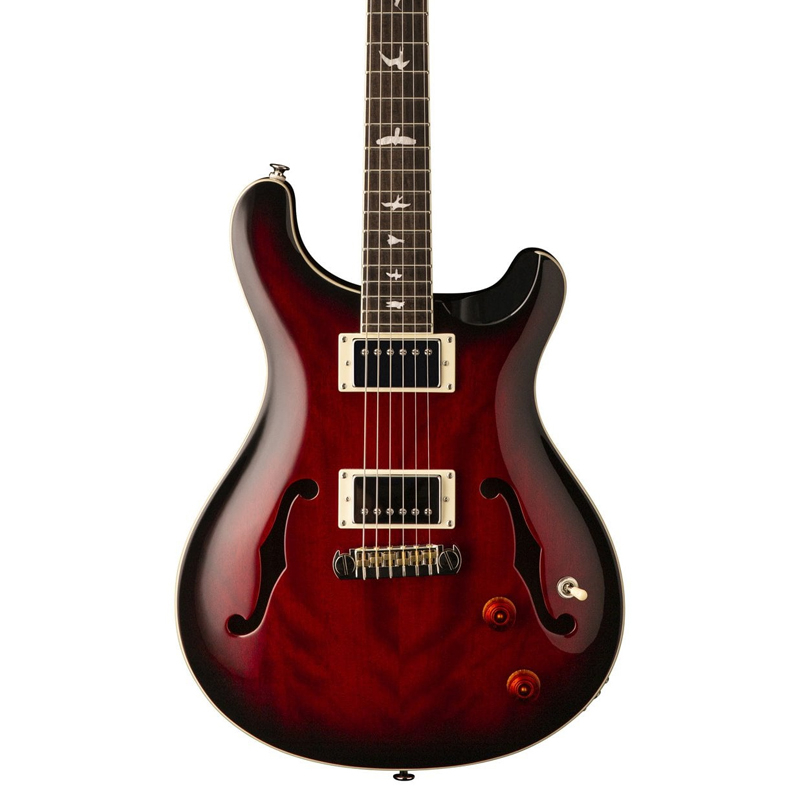
Body: Mahogany
Neck: Mahogany
Fingerboard: Ebony
Pickups: 58/15 "S"
+ Very versatile
+ Great build quality
- No lefthanded options
Guitars don't get much better than the PRS SE range when it comes to value for money. For me, this guitar is equal parts versatile, stunning and a joy to play - and the hollow construction means it is super lightweight when compared to the likes of the flagship Custom 24.
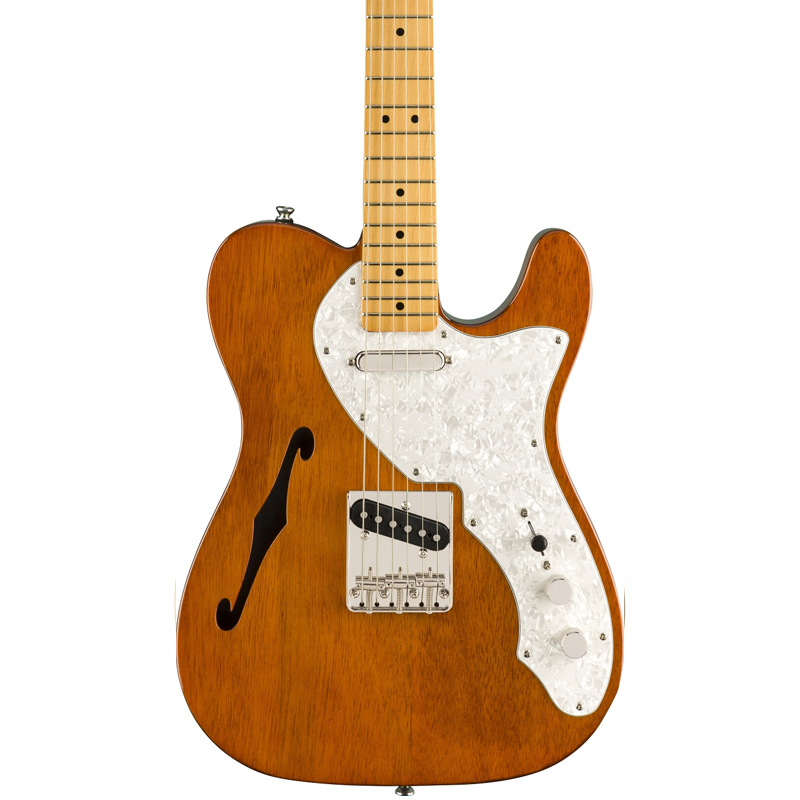
Body: Nyatoh
Neck: Maple
Fingerboard: Maple
Pickups: Alnico Single-Coil
+ Affordable
+ Bright tone
- Tuners could be better
This feather-weight Tele certainly passes the vibe check. I've always found the Squier Classic Vibe range to offer fantastic value for money, and the '60s Thinline Telecaster may be my favourite of the bunch. With its bright tone and slim C-shaped neck, this guitar delivers stunning tones and effortless playability.
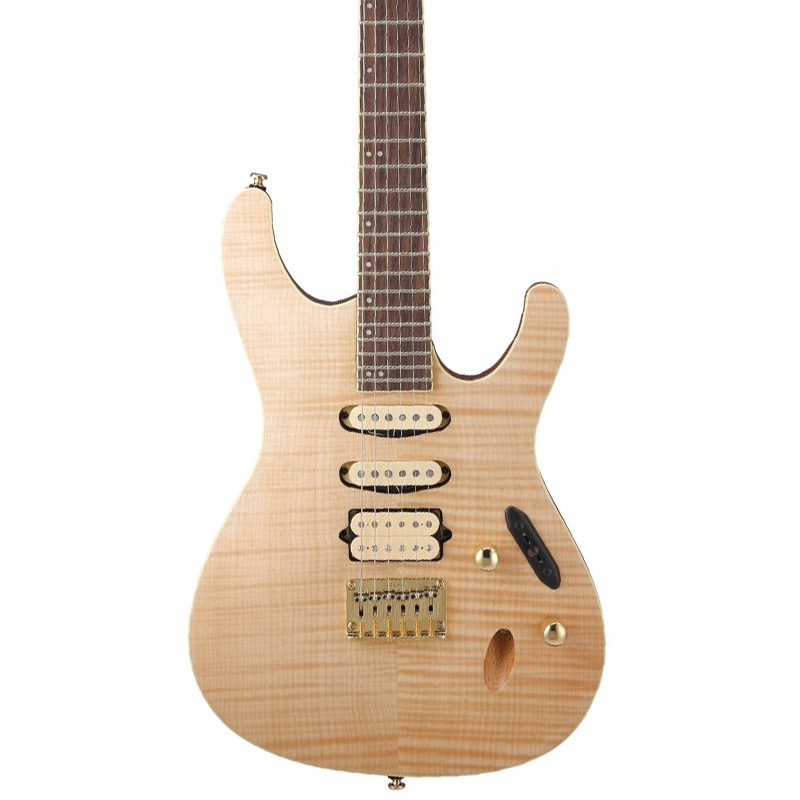
Body: Maple/Meranti
Neck: Maple
Fingerboard: Rosewood
Pickups: DiMarzio The Tone Zone/True Velvet
+ Built for speed
+ Aggressive tone
- Wizard neck is not for everyone
When it comes to shred-friendly guitars that are lightweight and easy to play, it's hard to look past Ibanez. With its flat and fast Wizard neck, this guitar can make anyone believe they can defy gravity with their long legato runs - and better yet, the unique Meranti body of the SEW761FM is so light, it very well may float away.
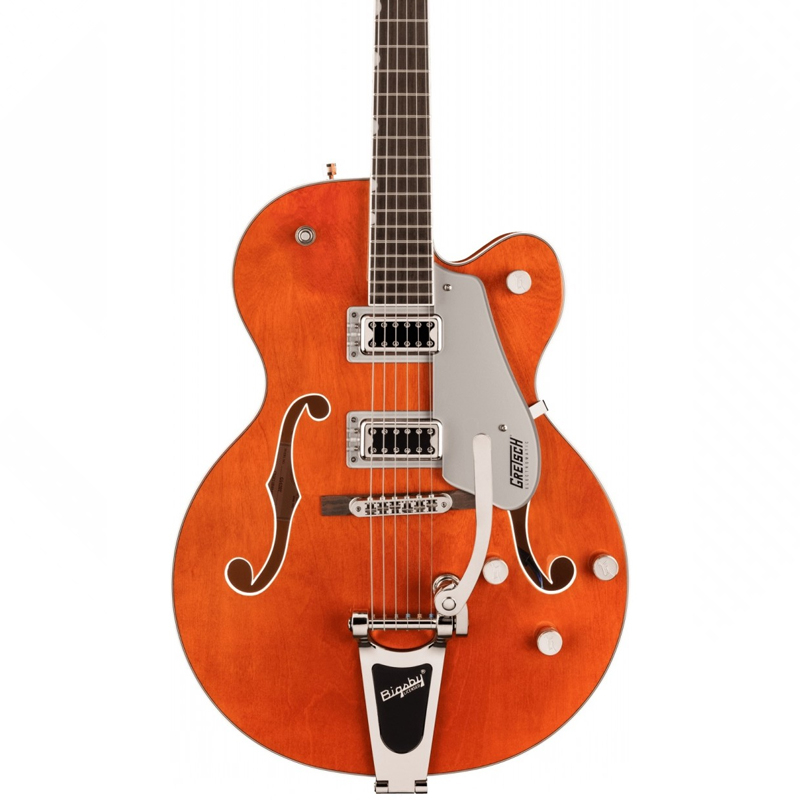
Body: Maple
Neck: Maple
Fingerboard: Laurel
Pickups: FT-5E Filter'Tron
+ That Gretsch sound
+ Seriously cool
- Too big for some
Don't let the enormous frame of the Gretsch Electromatic G5420T fool you, this larger-than-life guitar is actually very light. This is due to its fully hollowbody construction. The laminated maple body with trestle block bracing produces the classic sound of country, rock, pop and more, and it's a firm favourite of mine from the Gretsch range.
Related buyer's guides
- Protect your axe with the best guitar cases and gig bags
- Money no object? These are the best high-end electric guitars
- Dive deep with the best baritone guitars
- These are the best guitars for beginners
- Play away the blues with the best blues guitars
Want all the hottest music and gear news, reviews, deals, features and more, direct to your inbox? Sign up here.
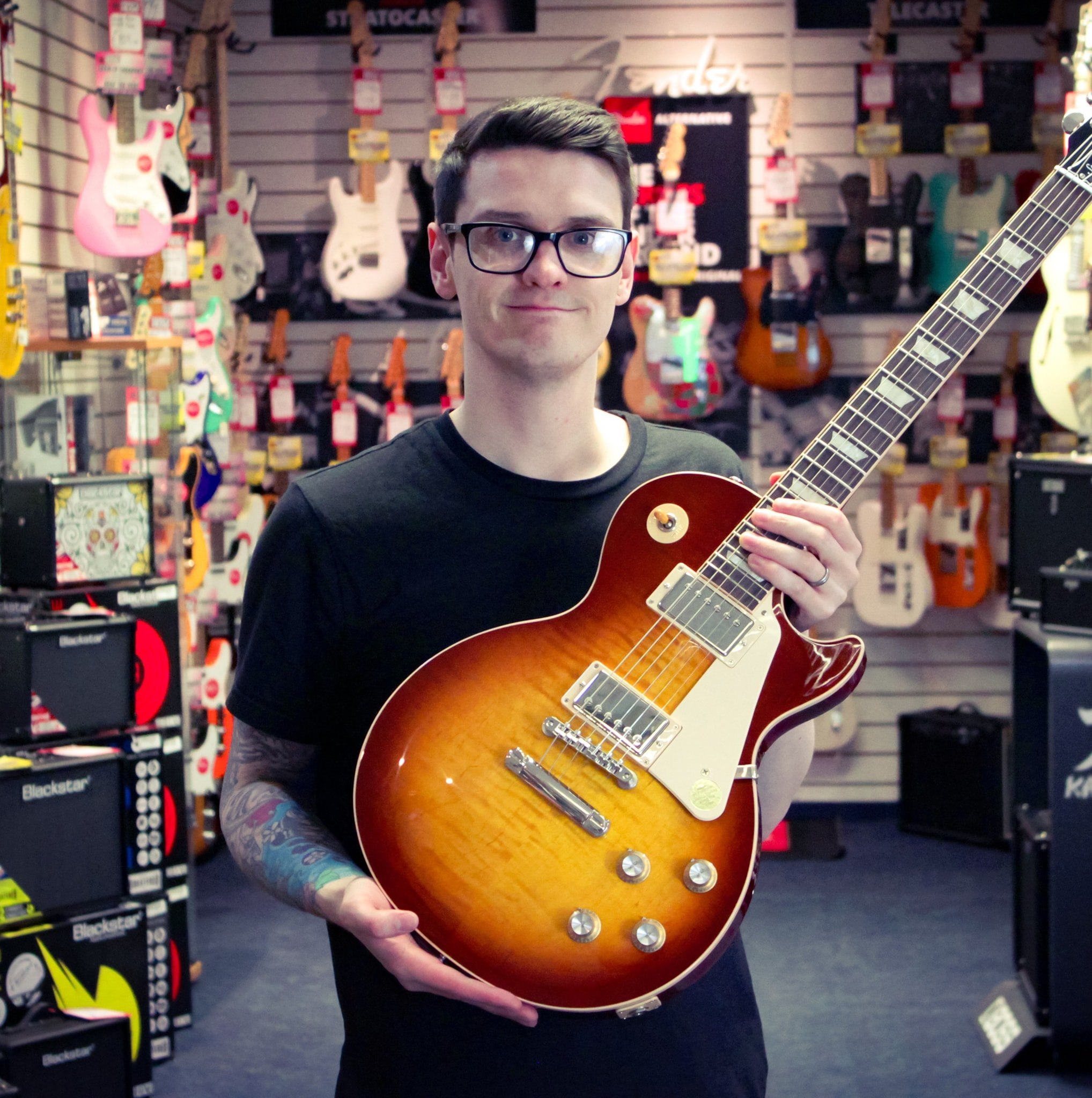
I'm a Senior Deals Writer at MusicRadar, and I'm responsible for writing and maintaining buyer's guides on the site. As part of my role, I also scour the internet for the best deals I can find on gear and get hands-on with the products for reviews. My gear reviews have been published in prominent publications, including Total Guitar, Guitarist, and Future Music, as well as Guitar World.com. I've also had the privilege of interviewing everyone from Slash to Yungblud, as well as members of Sum 41, Foo Fighters, The Offspring, and many more.
In a previous life, I worked in music retail, selling everything from digital pianos to electric guitars. I'm also a fully qualified sound engineer who holds a first-class Bachelor's degree in Creative Sound Production from the University of Abertay.